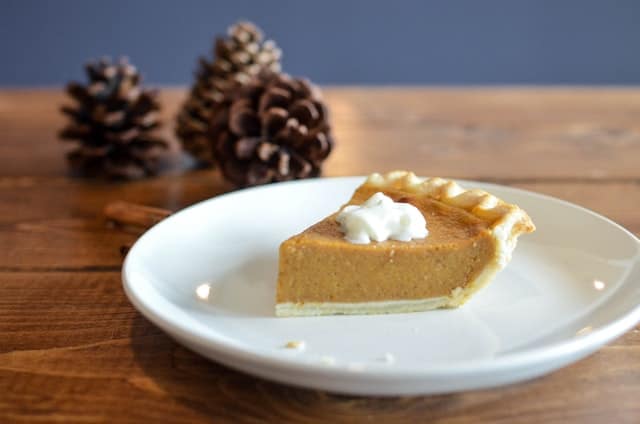What's the right holiday present or birthday gift for someone living with Alzheimer's or dementia? Being Patient's editors round up a list of expert-vetted suggestions.
There are plenty of gifts designed specifically for people living with dementia that can be helpful, calming or stress-relieving, whether they’re intended to spur memories, inspire social interaction, or provide comfort and anxiety relief. Here are some of Being Patient’s favorite gift ideas for people with dementia during the holiday season.
1. Fidget blankets, toys and aprons
Do you often find your loved one with dementia fidgeting or wanting to do something with their hands? Activity aprons, fidget boxes, fidget cuffs and other similar “fidget” gifts are specially designed to provide tactile stimulation and hand-eye coordination for people living with Alzheimer’s. How do you choose one? Read up on the science involved:
More Than Fun and Games: The Brain Science of Fidget Toys for Dementia
The gift: The Special Needs Sensory Activity Apron.
2. A coloring book
Coloring is a simple hobby with major benefits — benefits that go well beyond keeping kids entertained while waiting for the food to arrive at a restaurant. For grown-ups, studies have shown that coloring for just 20 minutes a day can increase mindfulness, reduce stress and improve one’s mood. Just as the mental health benefits of coloring span the age spectrum, they span the spectrum of cognitive health including adults living with Alzheimer’s and other types of dementia. One small study found evidence that performing art therapy-related activities with caregivers, including coloring, may be able to help dementia’s behavioral and psychological symptoms, improve social skills and lighten the load for caregivers.
“Coloring in is not a passive act,” wrote psychotherapist Philippa Perry for The Guardian. “You need to make creative decisions about which colors to choose and, while you concentrate on not going over the lines, other parts of your mind may be freed up in ways that allow you to become more creative.”
Now, not just any coloring book will do: Here are the top five things to look for in a coloring book for your loved one with dementia or Alzheimer’s, along with some of our favorites:
Best Coloring Books for People With Dementia: 5 Things to Look for
3. Puzzles
Jigsaw puzzles are a fun way to tap into many cognitive skills, including problem-solving and short-term memory, promoting healthy cognitive aging. Honing these skills can help build a cognitive reserve and encourage reminiscence. Since these puzzles come with varying difficulty levels and features, they can be an excellent gift for people across different stages of dementia.
Picking the right puzzle someone in the earliest stages of dementia
Custom-made jigsaw puzzles are designed to look like family photos or familiar landscapes that can spark memories and conversations. Pinhole Press makes custom jigsaw puzzles that range between 60 and 252 pieces. However, some of these puzzles might be more challenging for people in the later stages of dementia — the pieces are smaller and require more dexterity and fine motor movement. These puzzles aren’t designed to be as sturdy as some other puzzles for people in the later stages of the disease.
Relish also has jigsaw puzzles of real-world scenes with 63 or 100 pieces that might be appropriate for some people in the early stages of the disease.
Puzzles for people in middle-stage dementia
As dementia progresses, some people may be unable to speak or understand language. But, they may retain their concentration and jigsaw puzzle-solving skills.
In some forms of dementia, the ability to solve jigsaw puzzles may not decline. A 2009 study found that people with semantic dementia — a form of frontotemporal dementia that affects the ability to understand language — are just as fast (or sometimes quicker, depending on the complexity) at solving these puzzles than healthy older individuals or people with other forms of dementia.
These puzzle makers develop jigsaws that might be appropriate for patients in the moderate and later stages of the disease.
Relish’s 13 and 35-piece puzzles for people within these stages of the disease. They feature real-world scenes with conversation prompts that can help spark a conversation or reminiscence. The larger puzzle pieces are easier to handle for people in the later stages of dementia who develop some problems with their fine motor movements.
Keeping Busy has a variety of 35-piece puzzles designed for adults with dementia. Each puzzle comes with instructions for a family member or caregiver to help solve the puzzle easier or ramp up the difficulty.
4. A music player or digital radio
Playing your loved one’s favorite tunes, or old songs from their era, can be a great way to help spur memories and socializing. Research shows that music can be therapeutic in a number of different ways — from improving mental health to helping people heal faster. For Alzheimer’s patients, music has been shown to reduce agitation and even boost mood and memories, marking it as a potential therapeutic tool.
Music is also a powerful remedy for loneliness, experts say. “People with dementia are confronted by a world that is unfamiliar to them, which can cause disorientation and anxiety.” Dr. Jeff Anderson, associate professor in Radiology at the University of Utah Health, told Being Patient. “We believe music will tap into the salience network of the brain that is still relatively functioning.”
Similarly, a New York-based nonprofit, Music & Memory, has worked to connect people living with a wide range of cognitive conditions with the healing power of music. “Calming music can relieve anxiety,” Music & Memory Program Director Justin Russo told Being Patient. “In terms of agitation and anxiety in general, music focuses a person’s attention on something recognizable, which reduces the feeling of being overwhelmed and confused.”
Giving your loved one easy access to their favorite songs, or a playlist of music from the era in which they were young, can be a great holiday gift. Here’s some expert guidance for caregivers and family members to people living with dementia on music therapy’s benefits:
Please Don’t Stop the Music: 3 Ways to Use Music As Therapy Dementia Care
The gift: Check out the Unforgettable Music Player & Digital Radio from LiveBetterWith. A simple interface allows you and your loved one to play music easily, and it comes with a timer that turns the music off after a certain period of time; The simple music player ($150) was designed for people living with dementia. For easy operation, it has only three controls, as well as preloaded music and an option to download personalized music.
5. A day clock
As dementia progresses, simple tasks — like getting dressed or remembering what day it is — could become more and more challenging. Reminder day clocks can help maintain routines, appointments and independence. A large, easy-to-read screen lists the day of the week, time of day, month and year, and can automatically dim at night.
And, experts say, in creating structure for loved ones, caregivers need to not only keep track of time and activity, meal and medication schedules themselves — they need to find ways to share those schedules with the subject of their care:
“The importance of routine and familiarity to persons with dementia is profound,” writes the Alzheimer’s Project. “Daily structure can help decrease these undesired behaviors such as aggression, restlessness and agitation. As a result, the caregiver will experience less stress and be able to give better care.”
The gift: Consider the Unforgettable 2-in-1 Calendar & Day Clock from LiveBetterWith; the Day Clock with Reminder Assistance from the Alzheimer’s Store; or a clock with a large display designed specifically for older adults, such as this extra-large alarm clock ($55) with a user-friendly interface that includes easily adjustable settings and clear date and time stamps can help keep everyone on the same schedule. A large, easy-to-read wall calendar ($8) can help make the day’s schedule clear. For people living with visual impairments, this large one-button clock ($28) tells the date and time out loud. This vibrating watch ($46) vibrates to remind individuals with dementia to take their medication. Its lock function helps prevent tampering with settings.
Browse other tech ideas here:
6. Stuffed animal companions
Dogs have long been used to help guide, as well as provide companionship and comfort to people with mental health or physical conditions. According to the Anxiety and Depression Association of America, research has shown that having a pet can improve mental health, and help alleviate anxiety and depression. But what if you or your loved one don’t want the hassle of taking care of a pet? Robotic dogs or companion stuffed animals designed to feel like real animals are here to help.
Robotic pets became especially popular during the coronavirus pandemic of 2020, helping mitigate loneliness and isolation for people living with dementia. They’re not a fit for everyone — but read up on their potential benefits and see if they’re right for your loved one.
The gift: The Joy For All Grey & White Tabby Companion Cat from LiveBetterWith. According to LiveBetterWith, the Joy For All Cat is meant to look, feel and sound like a real cat. It purrs, is covered in soft fur and contains sensors that respond to touch.
7. A weighted blanket
Another item that can help reduce some of the anxiety, agitation or stress that comes along with Alzheimer’s or dementia is a weighted blanket. The idea is that the added weight of a heavy blanket can provide comforting pressure that lessens anxiety.
According to the Alzheimer’s Store, “caregivers can use weight therapy to help the person feel comfortable and secure while sleeping, sitting or in periods of confusion or stress … Many have described the added weight of our blanket as the feeling of a hug. Being able to give your loved one a ‘hug,’ even if you aren’t there physically, will help relax and calm during housing transitions, medical checkups or before sleep.”
The gift: The Sensory Weighted Blanket for Anxiety from the Dementia at the Alzheimer’s Store.
8. A life story book
As the memory of a person with Alzheimer’s falters, the best gift of all may simply be a way to help your loved one look back on, and remember, their lives.
Scientists say that people’s oldest and most cherished memories can bring joy to recall. Some memories become embedded in people’s brain, and reminiscing about good times in the past may tap into the brain’s power the store these old memories, leading to moments of warmth and pleasure.
LiveBetterWith has developed a simple “Life Story Book” that includes up to 50 memory prompt cards that help “spark vivid storytelling.” You and your loved one can fill in the blanks in each page — writing down when and where they were born, places they’ve traveled, and children they’ve raised — as well as add in photographs and other memorable items.
It’s like a scrapbook designed specially for dementia patients to help spur their memory, and can be a great gift to bring the family together.
The gift: Your Unforgettable Life Story Book from LiveBetterWith.
9. A little caregiving help
For caregivers and their family members, sometimes the best gift can be simply offering to help lighten the load or assist in caring for the person with dementia. “If friends or family members ask you what you’d like for a gift, you may want to suggest a gift certificate or something that will help make things easier,” Frantz says. That could include house cleaning, as well as lawn, handyman or laundry services. Another option is volunteering to visit the person with dementia for an afternoon so the caregiver can have some time off.
Find more ideas for caregivers here:
Get your loved one involved in the gift-giving
Gift-giving itself can be a way to engage a person living with dementia during the holidays. Instead of buying your loved one with dementia gifts, offer to get them involved in gift-giving if they’re still able to participate in tasks, says Niles Frantz of the Alzheimer’s Association.
“Depending on his or her abilities and preferences, involve the person in gift giving,” Frantz said. “For example, someone who once enjoyed baking may enjoy helping to make cookies and pack them in tins or boxes. Or you may want to buy the gift so that the person can wrap it.”





Youngsters in New Zealand are able to give a relatively blank-but-outlined book in which recipients are encouraged to write / recall special events that occurred in their family. The books are titled “From me to you to give to me ” and have prompts in the various sections to help an ageing brain to recall. These books become family treasures.
Hi, My husband is refusing to eat so may different foods that its getting impossible to cook areal that doesn’t get thrown out because he refuses to eat it . I’m running out of idea’s of what to cook for him, he also has no front teeth, so he can’t bite his food , only chew. So far he has refused to eat a meal for 3days
What can I feed him ?
My dad is 90 with dementia and also little appetite and losing his teeth, He LOVES my homemade chicken noodle soup. He would eat it every day if I let him.
Choose soft, nutrient-rich foods like oatmeal, mashed potatoes, scrambled eggs, soups, and smoothies for easy chewing. Consider meal replacement shakes for balanced nutrition without needing to chew. Offer smaller, more frequent meals or snacks rather than large ones, as they can be more manageable. Experiment with different flavors and textures by using various herbs, spices, or cooking methods to enhance appeal. Lastly, don’t hesitate to seek support from healthcare professionals, support groups, or loved ones if you’re feeling overwhelmed.
My dad loves his ice cream. Since he has lost so much weight, I don’t mind him eating extra portions.
Book marker that tells family about what person is going through